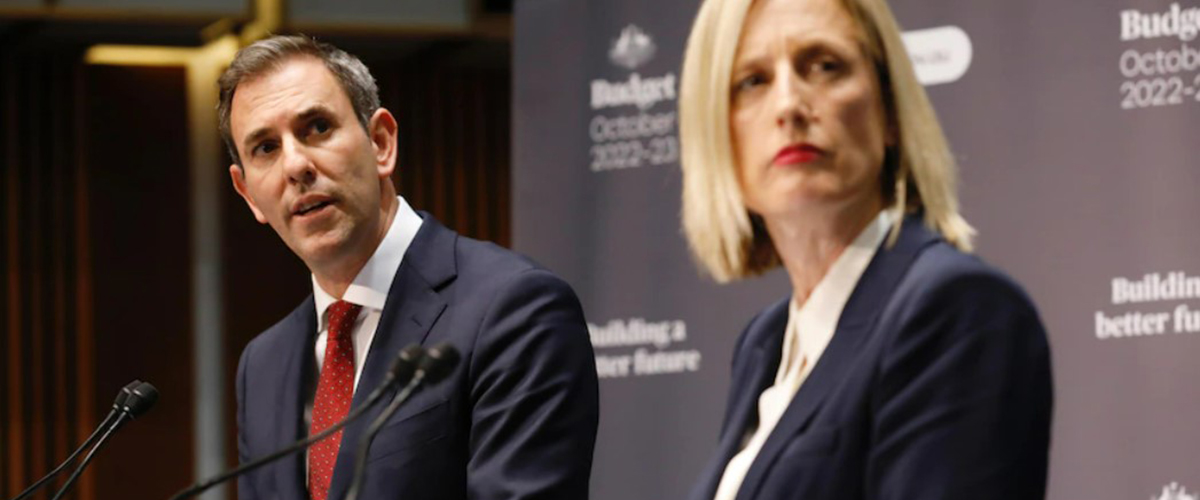Tue 25 October 2022
Hospital Pharmacists welcome medicines cost relief, but sustainable workforce needed to drive hospital and health reform
The Society of Hospital Pharmacists of Australia (SHPA) has welcomed the Albanese Labor Government’s first Budget tonight, which addresses major issues facing Australia’s healthcare system through investment into Medicare, the Pharmaceutical Benefits Scheme (PBS) aged care and health workforce, amid focus on the economy, environment and cost-of-living pressures.
SHPA Chief Executive Kristin Michaels says the cost of medicines is a significant barrier to Australians accessing key, life-saving treatments that may keep them out of hospital.
‘SHPA congratulates Minister Butler and his Assistant Ministers on their first Budget which delivers on Labor’s $787m key election platform to cut the PBS medicines general co‑payment from $42.50 to $30, while backing in our world-class PBS with an additional $1.4bn for new and amended PBS listings.
‘Hospital Pharmacists are at the receiving end of the 250,000 medication-related hospital admissions each year, and as we heard from an ex-Hospital Pharmacist, Assistant Minister Emma McBride, earlier this month, the cost of medicines is a risk variable we can and must manage.
‘At a time when our hospitals are struggling with capacity, measures that keep Australians healthy in the community and out of hospitals are particularly valuable.
‘The $759.9m recommitment to extend the National Partnership on COVID-19 Response until 31 December 2022 is welcomed but, to ensure we can meet four-hour emergency care targets, avoid ambulance ramping and admit patients onto wards without delay, the hospitals sector needs the 50-50 hospital funding partnership to be entrenched as a permanent arrangement as we look toward negotiation of a new National Health Reform Agreement during this term of Parliament.’
SHPA welcomed several key Budget measures:
- $12.9m to establish Jobs and Skills Australia, an important first step in tackling pharmacy workforce challenges and shortages, which were acknowledged this month by the National Skills Commission (NSC).
- $921.7m for vocational education and training (VET), critical to further developing the Hospital Pharmacy Technician workforce whose expanding scope of practice is key to safe medicines supply in hospitals, helping ensure Hospital Pharmacists spend more time delivering direct patient care.
- $143.3m to support access to healthcare in rural and regional areas by investing in primary care services, training, workforce incentives and 20,000 additional Commonwealth supported places at universities, some of which will specifically be targeted at pharmacy students.
- $3.2m undertake the initial design for the establishment of an Australian Centre for Disease Control, crucial to ensuring central guidance and leadership in pandemics.
- $3.4m to develop a National Health and Climate Strategy, aligned to Theme 1 of SHPA’s Pharmacy Forecast Australia 2022, which includes recommendations on how pharmacy education, pharmacy practice, hospitals systems and reducing pharmaceutical waste can contribute to lower emissions and foster sustainability.
Ms Michaels says it is important budgeted measures recognise nationwide shortages of Hospital Pharmacists, which contribute to unsafe hospital care and poor transitions of care, increasing the risk of readmission to hospital.
‘We know there is a cyclical maldistribution of hospital pharmacists disadvantaging rural and regional hospitals; they have less pharmacy interns, less early career pharmacists, and less student placement hours, which our Hospital Pharmacy leaders know drags on retention and recruitment in our regions.
‘SHPA’s Residency Program is an Australian first, supporting just under 700 pharmacists through their early career development via structured, on-site training that helps ensure they remain in the healthcare system.
‘SHPA looks forward to partnering with the Australian Government to ensure we further increase their coverage and bring Residency opportunities to pharmacists in rural and regional Australia – and we look forward to pharmacy being an important part of the funding package for rural and regional health.’
Ms Michaels says it is crucial to learn the lessons of COVID-19, through which the lack of resilience in Australia’s federated healthcare system was on public display.
‘Hospital Pharmacists have been at the forefront of our evolving COVID-19 response since the first weeks of local transmission, and SHPA’s COVID-19 Hospital Pharmacy Capacity Snapshot: Final Report details the risks of lack of planning, collaboration and information-sharing between Australian healthcare providers.
‘We anticipate the establishment of the Australian Centre for Disease Control will deliver on some of the key recommendations of our report, along with the additional $500m for National Medical Stockpile procurement.’


